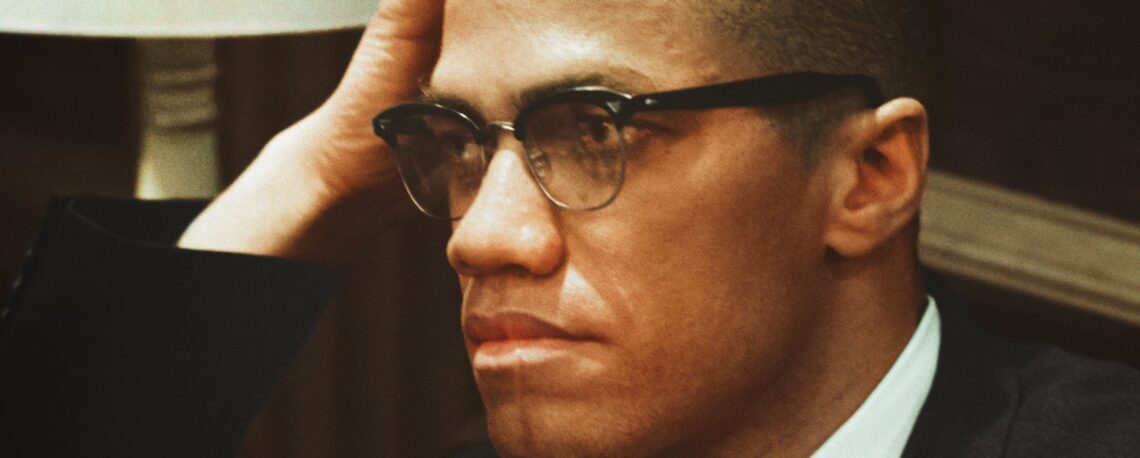The American history curriculum taught in public schools and portrayed by mainstream media effectively downplays certain figures’ impact on history. Namely, Malcolm X. Most people understand Malcolm X to be a black nationalist extremist concerned with the freedom of African Americans “by any means necessary”, who was also involved with the Nation of Islam and the Civil Rights Movement. However, his founding of the Organization of Afro-American Unity in 1964, his advocacy work in the Congo, and his admiration of Patrice Lumumba are less discussed.
Towards the end of his life in the 1960s, Malcolm X advocated strongly for the Congo. His major points of contention included the treachery of Moise Tshombe and the failure of the American media to highlight the grave situation. This advocacy stemmed from his desire to unite black people worldwide.
To better understand Malcolm’s advocacy for the freedom of the Congo, one must understand the violence that was taking place there during the early 1960s. The country had just won its independence from the Belgian government, Joseph Kasavubu was elected president, and Patrice Lumumba was elected as the first – and, according to Malcolm, only – rightful prime minister of the country. In response, Congolese soldiers of the Force Publique rebelled against their white officers and incited violence across the country. At this point, Belgian troops had been sent in, aid had been requested from the UN who created an intervention force, and, afraid of potential communist influence, the United States had begun to involve itself as well, working to remove Lumumba. Misinformation spread by Western intelligence, and a coup by Colonel Joseph Mobutu led to Lumumba’s assassination. Mobutu established relations with the U.S., securing funds to quell rebellions. Thus, the Congo was in chaos when Malcolm X began his public advocacy.
Malcolm believed that Tshombe was the “worst African ever born.” He believed that Patrice Lumumba was the rightful prime minister and that Tshombe was an American agent sent in to disturb the peace. In this way, Malcolm refers to Tshombe as an unreputable figure who gained power through underhanded means. He was living in exile after he led the effort for Katanga to secede from the Congo before returning to the Congo to serve as prime minister. Furthermore, his reign as prime minister was backed by U.S. money, as a means to suppress the rebels fighting to build their government due to fear of a “communist takeover” according to the CIA. He only served as prime minister for about a year before being dismissed by President Joseph Kasavubu. Seeing Tshombe as an American Agent sent to further disturb the natural development of the Congo into a functioning state, Malcolm was very vocal about his disdain towards this man, who, as one could interpret, served as an enemy of progress.
Even further than the direct actions being taken in the Congo, Malcolm was also vocal about his disapproval of how the American media handled sharing the word of the crisis with the American population, especially black people. Seeing as America is a primary instigator in the Congo conflict, and has continued to be well into the 21st century, it is morally unacceptable for America to be so negligent in its coverage of the Congo. This negligence can be seen as America viewing the conflict as trivial, even when considering the mineral wealth of the Congo is quite instrumental in the technological innovations of many wealthy developed nations, as well as the direct American support in the violence by supplying money, weapons, and voting power. It is also important to keep in mind the fact that America was so attentive to broadcasting the news of other foreign conflicts, most notably the Vietnam War, that the American public was not shy in voicing their outcry.
Although this activism from Malcolm was not long-lived, only going forward for about 2-3 years, it is vital to remember that at the heart of all this was the hope for a united black people. He wanted African Americans living in the United States to feel the urge to show support and even help their fellow African-descended brothers and sisters who are fighting in the Congo for their freedom and autonomy. Even going back nearly 100 years at the point when Malcolm was advocating, the Congo had been suffering at the hands of European nations, Belgium specifically. Even after winning its independence, interference from other countries and the long-lasting effects of that interference have been the driving force of the ongoing violence that plagues the Congo. Malcolm believed that it was the responsibility of black people in the United States to be sensitive to the struggles that were and still are affecting our people across the globe, especially in the Congo.
Written by Dylan Legend

